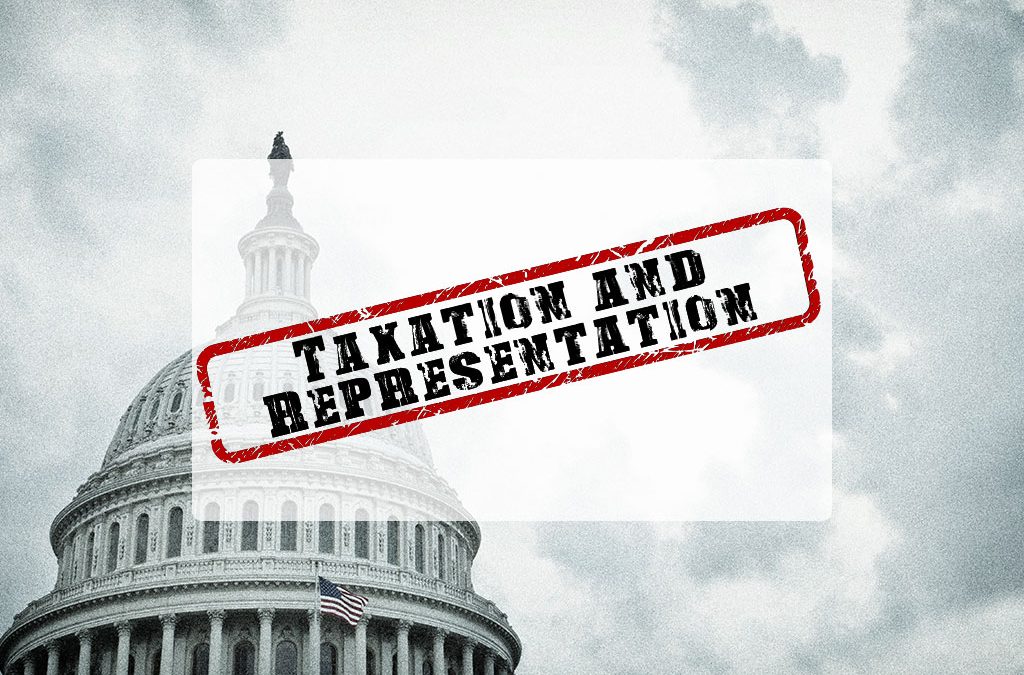The data is in! See what family owned businesses are saying about today’s challenges and opportunities.
Ways and Means Committee Overwhelmingly Passes Tax Package. On Jan. 19, the House Ways and Means Committee completed a markup of the Tax Relief for American Families and Workers Act of 2024 (H.R. 7024), which was favorably reported by a vote of 40-3. The bill was unveiled on Jan. 16 as the result of negotiations between House Ways and Means Committee Chair Jason Smith (R-MO) and Senate Finance Committee Chair Ron Wyden (D-OR). The bill includes numerous bipartisan tax provisions that benefit both businesses and individuals. At the core of the package are provisions restoring three business tax provisions addressed in the Tax Cuts and Jobs Act (Pub. L. 115-97): research and development amortization, bonus depreciation, and the limitation on the deductibility of business interest. The three business provisions were balanced with expansions to the amount and eligibility of the child tax credit. For a full list of provisions included in the bill, please see the Jan. 17 issue of Taxation & Representation.
Republican Ways and Means Member Introduces Estate Tax Repeal Bill. On Jan. 18, Rep. Randy Feenstra (R-IA) announced his introduction of the Death Tax Repeal Act of 2023 in the House. The legislation would permanently repeal the estate tax, commonly known as the “death tax,” a tax that is imposed on an individual’s property owned at the time of his or her death. For taxpayers who pass away in 2024, the tax affects estates with a date-of-death value of over $13,610,000, with marginal tax rates on taxable estates of up to 40%. Advocates for the estate tax contend that the exemption amount is excessive, as the Institute of Taxation and Economic Policy noted in a study from December 2023, which found that the estate tax only applied to 0.08% of American taxpayers in 2019. Feenstra argued that the estate tax is a significant instance of double taxation, disproportionately affects generationally owned businesses and farms, and is levied at an inappropriate time while families and heirs are grieving. He also stressed that repealing the tax would “ensure that hardworking families, farmers, and small businesses keep more of their hard-earned money, and strengthen family-owned-and-operated enterprises ….”
IRS Delays Guidance of CAMT and Stock Buyback Excise Tax. Speaking at a New York State Bar Association meeting on Jan. 16, Treasury Deputy Tax Legislative Counsel Brett York said that final rules implementing the Corporate Alternative Minimum Tax (CAMT) are “not imminent in a private sector sense” and that the Treasury Department cannot provide “specific time frames” as to when guidelines will be issued. Regarding the stock buyback excise tax, Internal Revenue Service (IRS) Associate Chief Counsel Peter Blessing said that guidance will come out “in the next few months.” Both taxes were enacted in 2022 as part of the Inflation Reduction Act (IRA, Pub. L. 117-169).
Treasury Department Assistant Secretary Lily Batchelder Announces Departure. On Jan. 19, it was reported that Treasury Department Assistant Secretary for Tax Policy Lily Batchelder would leave the department at the end of February. Batchelder has been serving in the position since September 2021, where she oversees negotiations between the Treasury Department and the Organisation for Economic Co-Operation and Development (OECD) in the two-pillar global tax regime. She is also in charge of the implementation of the CHIPS and Science Act and the Inflation Reduction Act. After her stint at the Treasury Department, she will return to New York University as a professor at the NYU School of Law.

About Brownstein Hyatt Farber Schreck
Brownstein Hyatt Farber Schreck is a unique law firm. Walk into any of our offices and you’ll immediately recognize a different type of energy. Complacency doesn’t have a place here. Flexibility and inspiration do. Our culture and enthusiasm allow our attorneys, policy consultants and legal staff to stay ahead of our clients’ needs and provide them with the resources they require to meet their business objectives.
We hope you've enjoyed this article. While you're here, we have a small favor to ask...
As we prepare for what promises to be a pivotal year for America, we're asking you to consider becoming a member.
The need for fact-based reporting of issues important to family owned businesses and protecting a lifetime of savings has never been greater. Now more than ever, successful families and family owned businesses are under fire. That's why Family Enterprise USA is passionately working to increase the awareness of issues important to family owned businesses built on hard work, while continuing to strengthen our presence on Capitol Hill. The issues we fight for or against with Congress in Washington DC include high income tax rates, possible elimination of valuation discounts, increase in capital gains tax, enactment of a wealth tax, and the continued burden of the gift tax, estate tax and generation skipping tax.
Family Enterprise USA promotes generationally owned family business creation, growth, viability, and sustainability by advocating for family businesses and their lifetime of savings with Congress in Washington DC. Since 2007, Family Enterprise USA has represented and celebrated all sizes, professions and industries of family-owned enterprises and multi-generational employers. It is a bi-partisan 501.c3 organization. Family foundations can donate.
#incometax #CapitalGainsTax #R&DExpensing #DontPunishSuccess #GrantorTrusts #StepUpinBasis #likeKindExchanges #AcceleratedDepreciation #EstateTax #Deathtax #wealthtax #taxLegislation #CongressionalCaucus #incometaxrates #repealestatetax #AdvocatingForFamilyBusinesses #FamilyOwnedBusiness #WomenOwnedBusiness @FamilyEnterpriseUSA #FamilyEnterpriseUSA

